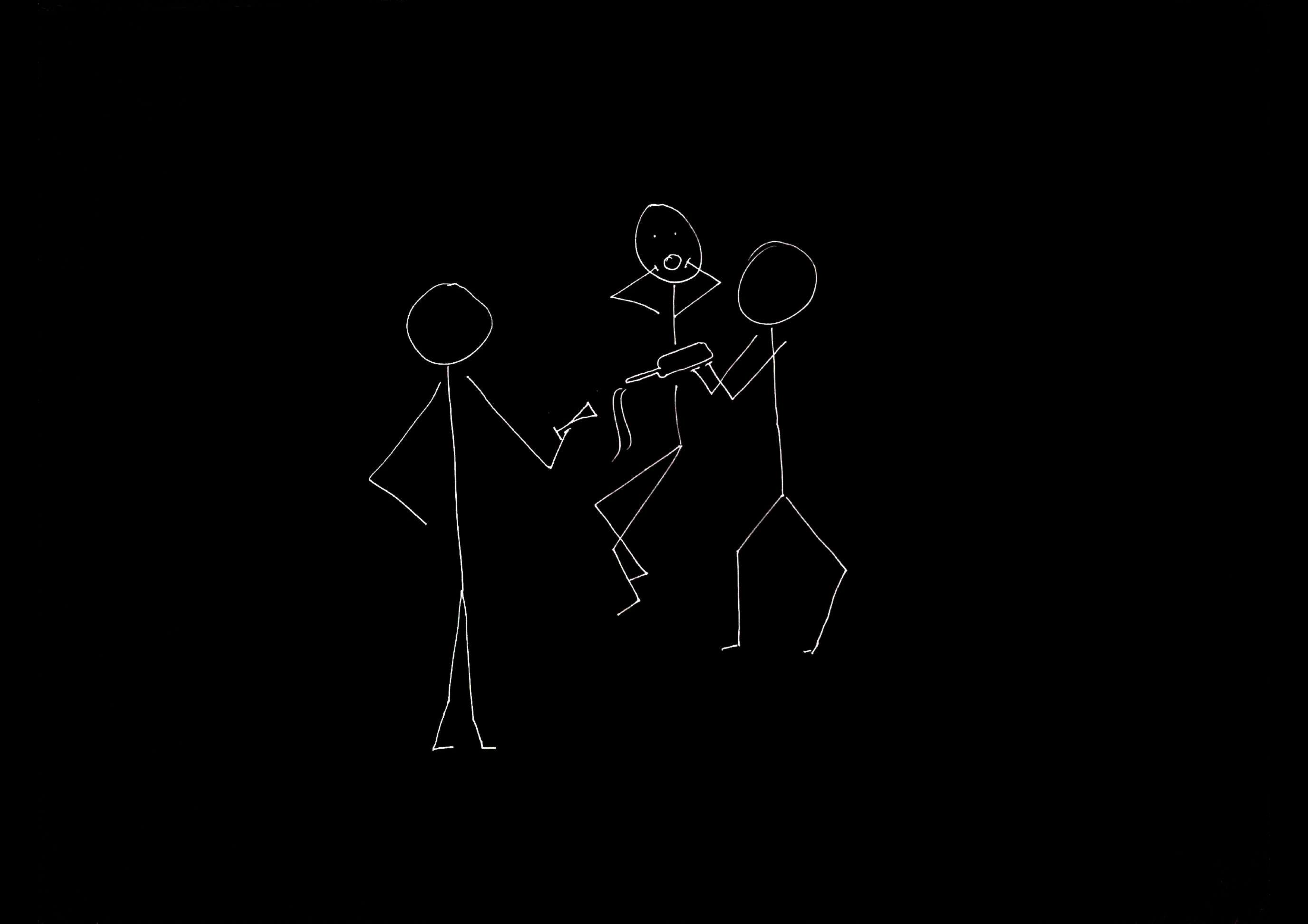Click here and press the right key for the next slide (or swipe left)
also ...
Press the left key to go backwards (or swipe right)
Press n to toggle whether notes are shown (or add '?notes' to the url before the #)
Press m or double tap to slide thumbnails (menu)
Press ? at any time to show the keyboard shortcuts
Intentions and Goals

Which events are actions?
In philosophy, answering this question would typically answered by appeal to intention
or practical reasoning.
Let me suggest one reason why this view seems tempting ...

You tilt the bottle thereby pouring prosecco all over Zac's trousers.
You might say, the goal of my actions was not to soak Zac's trousers but to
fill his glass.
What is the relation between a purposive action and the outcome or outcomes to which it is directed?
As this illustrates,
some actions involving are purposive in the sense that
among all their actual and possible consequences,
there are outcomes to which they are directed
In such cases we can say that the actions are clearly purposive.
Concerning any such actions, we can ask
What is the relation between a purposive action and the outcome or outcomes to which it is directed?
The standard answer to this question involves intention.
An intention (1) specifies an outcome,
(2) coordinates the one or several activities which comprise the action;
and (3) coordinate these activities in a way that would normally facilitate the outcome’s occurrence.
What binds particular component actions together into larger purposive actions?
It is the fact that these actions are all parts of plans involving a single intention.
What singles out an actual or possible outcome as one to which the component
actions are collectively directed? It is the fact that this outcome is
represented by the intention.
So the intention is what binds component actions together into purposive actions and
links the action taken as a whole to the outcomes to which they are directed.

Which events are actions?
In philosophy, answering this question would typically answered by appeal to intention
or practical reasoning.
Such views tend to be neutral on how
the attitudes and processes ultimately connect to bodily movements;
that is considered to be merely an implementation detail ...
They are neutral in this sense: the views do not depend in any way on facts about that
distinguish one kind of body from another, or on facts about how the body’s movements
are ultimately controlled ...

In cognitive science ... little to say about actions whose purposes
involve things the motor system doesn’t care about---your motor system
doesn’t care whether the plane you are stepping is headed for Milan or
for Rome, but this sort of difference can affect whether your actions succeed or fail.